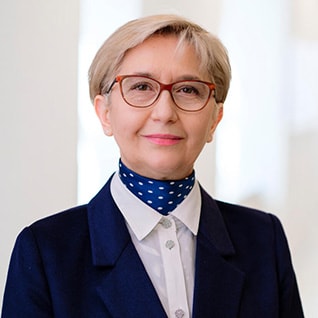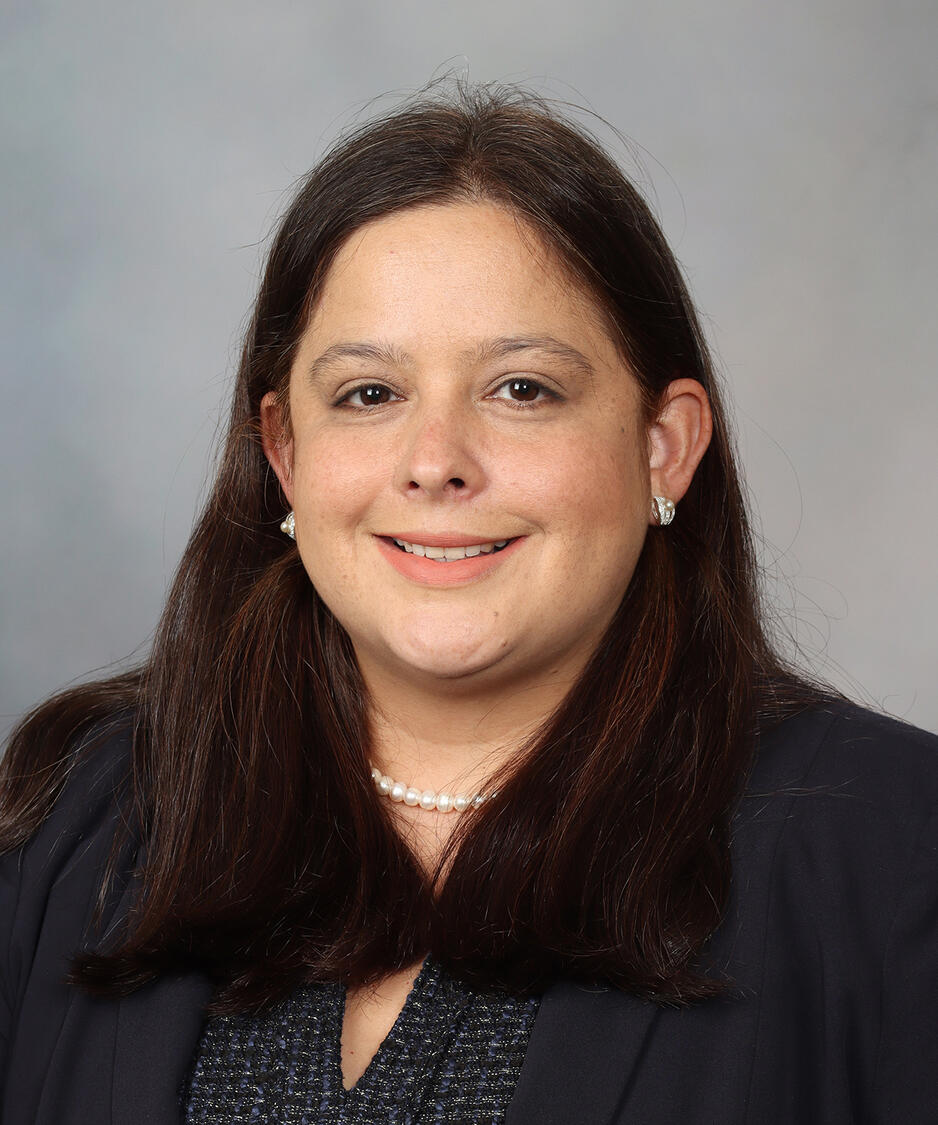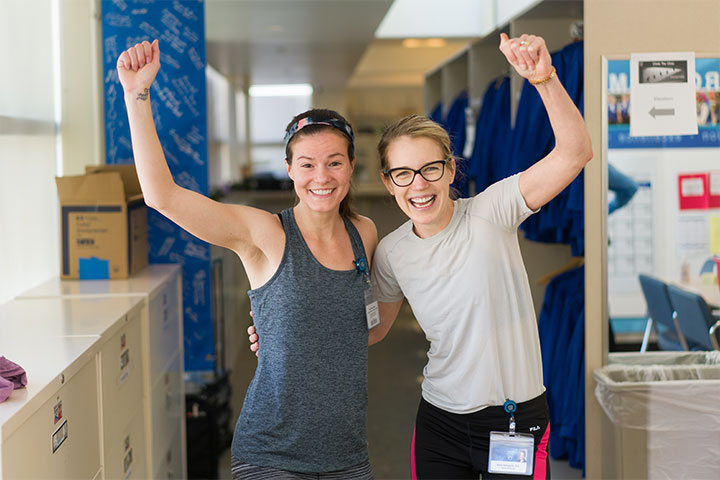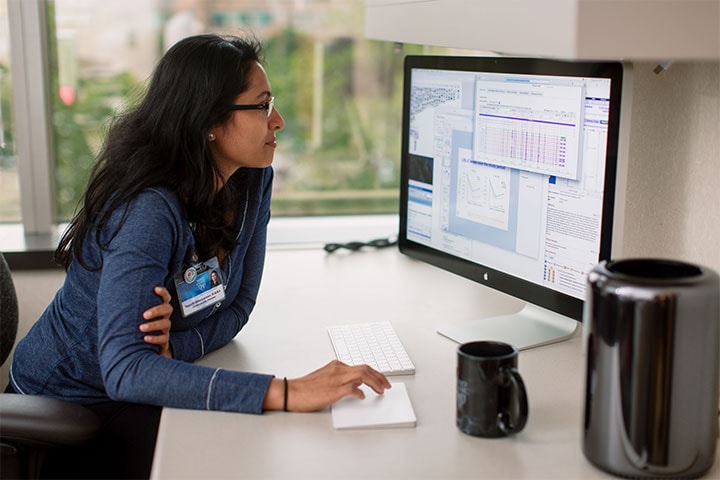Overview
The Obstetric Nephrology Fellowship at Mayo Clinic's campus in Rochester, Minnesota, is a one-year program designed for second-year nephrology fellows. The fellowship is a specialized program to provide you with in-depth knowledge and hands-on experience in managing kidney-related issues during pregnancy. This training involves both inpatient and outpatient clinical experiences and emphasizes the intersection of nephrology and obstetrics. It aims to equip you with the skills needed to care for pregnant women with pre-existing kidney conditions, as well as those who develop renal complications during pregnancy. You will gain expertise in this unique area of care and receive a certificate upon completion.
The fellowship offers:
- Specialized training aimed at developing comprehensive expertise in managing a wide array of nephrological issues during pregnancy. You will gain a deep understanding of the renal physiological changes that occur in normal pregnancy, learn to provide counseling on contraception to prevent unintended or high-risk pregnancies, and acquire the skills to care for pregnant women with diverse kidney disorders, electrolyte imbalances, and those who have undergone kidney transplantation.
- Engagement in cutting-edge clinical studies and participation in translational research that aims to improve outcomes for pregnant women with kidney diseases.
months of training
fellow per year
faculty-to-trainee ratio
Program history
The Obstetric Nephrology Fellowship at Mayo Clinic in Rochester, Minnesota, is a new program starting on July 1, 2025. This fellowship was established to address the growing demand for nephrologists with expertise in managing complex obstetric nephrology cases. One fellowship position is available each academic year.
Application process
Positions
The Obstetric Nephrology Fellowship at Mayo Clinic in Rochester, Minnesota, has one position available for fellows who are on track to enter their second year of fellowship in the upcoming academic year. Competitive applicants will apply early and express interest to their program director by November of their first year of the Nephrology Fellowship.
Qualifications
Applicants for the Obstetric Nephrology Fellowship program must have completed an Accreditation Council for Graduate Medical Education (ACGME) three-year Internal Medicine Residency program and their first year of Nephrology Fellowship at Mayo Clinic in Rochester, Minnesota.
Also see general admissions requirements.
How to apply
You must apply through Recruit, a third-party application service. No matching service is used.
Applications are accepted throughout the year for consideration. Please note that our academic year beings on July 1 and runs through June 30 of the following year.
- To apply to the program, visit the CRM Recruit website. All applications to Mayo Clinic School of Graduate Medical Education programs must include these application materials.
In addition, this fellowship requires two letters of recommendation, one of which is from your fellowship program director or department chair. - Applicants considered for an appointment will be invited to an in-person interview with the program director and select faculty members. Interviews are usually conducted between November and December.
/prod01/channel_2/media/mccms/content-assets/academics/residencies-and-fellowships/obstetric-nephrology-fellowship-minnesota/obstetric-nephrology-fellowship-mn-1024X512-WF3232170-0165.jpg)
Curriculum
Clinical training
During the Obstetric Nephrology Fellowship, you will work with obstetric nephrology and hypertension specialists for at least one day each week. In parallel, you will maintain your nephrology continuity clinic and will actively participate in a research project focused on obstetric nephrology throughout the fellowship.
You will manage patients with a range of conditions, including pregnancy-related hypertensive disorders such as preeclampsia, acute kidney injury during pregnancy and postpartum, advanced chronic kidney disease in pregnant patients requiring dialysis, and the management of immunosuppressive therapy in pregnant patients with solid-organ transplants.
Assigned faculty members will gradually introduce obstetric nephrology patients to you in a step-wise manner. First, you will evaluate the patient and then present the case to the assigned faculty member for the day. Initially, you will receive close supervision for each case, with the faculty member guiding the management process. As you gain confidence and expertise, you will begin to formulate your own management plans to present to the faculty member. The program director will also meet regularly with you to provide mentorship and guidance throughout the fellowship.
Rotation schedule
| Rotation | Length |
|---|---|
| Obstetric Nephrology Clinic | 42 days spread over 12 months (full days on Wednesdays) |
| Obstetric Nephrology Clinic focusing on hypertension | 20 days spread over 12 months (full days) |
| Obstetric Nephrology Clinic | 10 days spread over 12 months (full days other than Wednesdays) |
| Weekly half-day Nephrology Continuity Clinic | Spread over 12 months |
| High-Risk Obstetric Clinic (Maternal Fetal Medicine Department) | 1 month |
| Research | 5 months |
| Obstetric Nephrology Consultative Service | 1 month |
| Medical School Renal Block | 3 weeks |
| Teaching Skills Workshop | 3 half-days (Wednesdays in January) |
| Hypertension in Pregnancy Society Conference | 3 days |
Rotation descriptions
Obstetric Nephrology Clinic: You will participate in a once-weekly clinic day dedicated to managing patients with kidney-related concerns during pregnancy. The clinic will focus on a range of conditions including pregnancy-induced hypertension, preeclampsia, acute kidney injury during pregnancy and postpartum, chronic kidney disease in pregnancy, and the management of kidney transplant recipients. You will be actively involved in patient evaluation, renal function assessment, and the development of personalized treatment plans tailored to each patient's specific needs, all under the supervision of an obstetric nephrology specialist.
General Nephrology Clinics: You will continue to participate in the regular nephrology continuity clinic, where you will manage a wide variety of kidney-related conditions, gaining exposure to both common and complex cases. This clinic will offer you a valuable opportunity to build a strong foundation in nephrology, including the diagnosis, management, and ongoing follow-up of diverse renal disorders.
High-Risk Obstetric Clinic: You will be involved in the care of pregnant women who have underlying medical conditions that place them and their pregnancies at increased risk. These conditions may include hypertension, glomerular disorders, chronic kidney disease, or kidney transplant. The clinic will provide you with comprehensive experience in managing complex, high-risk pregnancies while working closely with an interdisciplinary team of specialists.
Research: You will engage in research focused on obstetric nephrology, with the goal of collecting and analyzing data to present at the conclusion of the fellowship. You will be encouraged to present your findings at relevant conferences and contribute to publications in peer-reviewed journals.
Obstetric Nephrology Consultative Service: You will develop proficiency in the evaluation and management of electrolyte disorders during pregnancy, as well as the diagnosis and treatment of new-onset or flare-ups of underlying glomerular diseases. Additionally, you will become skilled in the diagnosis and management of acute kidney injury (AKI) during pregnancy and the postpartum period, learning to identify underlying causes, initiate appropriate treatments, and monitor both maternal and fetal health.
Medical School Renal Block: You will participate in small group teaching and clinical shadowing for Mayo Clinic Alix School of Medicine students at the direction of the Renal Block Director.
Teaching Skills Workshop: You will receive expert instruction in teaching methods and modalities tailored specifically to medical education. This training will focus on effective communication, instructional strategies, and the use of various teaching tools to facilitate learning, both for peers and future medical students or residents. The goal is to equip you with the skills necessary to become an effective educator.
Hypertension in Pregnancy Society Conference: You will have the opportunity to participate in national and international conferences dedicated to key topics related to hypertension in pregnancy. These conferences will cover the latest updates in pathophysiology, early detection, risk management, and maternal-fetal outcomes associated with hypertension in pregnancy. Additionally, you will explore cutting-edge research, current clinical guidelines, and global health perspectives, gaining a well-rounded understanding of the condition's challenges and the advancements in care on a global scale.
Didactic training, conferences
Didactic training
You will have a mix of research and outpatient clinic education. There is no on-call requirement for this fellowship.
You will participate and/or attend the following educational conferences:
- Nephrology and Hypertension Grand Rounds
- Nephrology Core Conference
- Nephrology and Hypertension Journal Club
- Acid Base/Electrolyte Conference
- Renal Biopsy Conference
- Nephrology Genomic Odyssey Board Meeting
- Maternal and Fetal Medicine Conference
Didactic education occurs on a consistent interval so that trainees can plan accordingly.
Conferences
Nephrology and Hypertension Grand Rounds – Occurs on Tuesdays between 7:30-8:30 a.m. This conference is designed for faculty members to share their latest research and clinical practices.
Nephrology Core Conference – Occurs on Thursdays between 12-1 p.m. This conference is geared towards nephrology fellow education with a wide range of topics that includes obstetric nephrology topics.
Nephrology and Hypertension Journal Club – Occurs on Fridays between 7:30-8:30 a.m. This conference consists of a critical review of a scholarly journal article by a fellow and subsequent discussion.
Acid Base/Electrolyte Conference – Occurs on select Fridays between 7:30-8:30 a.m. in place of Nephrology and Hypertension Journal Club. The goal of this conference is to present a teaching case focused on acid-base and electrolyte disturbances, highlighting key teaching points.
Renal Biopsy Conference – Occurs on Fridays between 12-1 p.m. Our renal pathologists and faculty members review interesting renal biopsy cases from the past week. You will have the opportunity to examine the slides alongside the renal pathologists to develop a pathologic diagnosis. Following this, the case is discussed in detail by the treating physician, renal pathologist, and other audience members, fostering a collaborative learning environment and deepening the fellows' understanding of renal pathology.
Nephrology Genomic Odyssey Board Meeting – This is a monthly educational and collaborative event designed to explore the latest advancements in the genetic underpinnings of kidney diseases. This conference brings together nephrologists, geneticists, pathologists, and other healthcare professionals to discuss the role of genetics in kidney disorders, including both rare and common conditions.
Maternal and Fetal Medicine Conference – The conference brings together maternal-fetal medicine specialists, nephrologists, cardiologists, and other healthcare professionals to present challenging cases and discuss the latest research, clinical guidelines, and treatment strategies for managing conditions such as preeclampsia, gestational hypertension, and chronic hypertension during pregnancy.
Research opportunities, teaching opportunities
Research opportunities
You can expect a personalized approach to research development. We have a dedicated Fellow Research Chair who meets with trainees regularly to identify a suitable mentor based on their specific research interests and goals. Whether the research focus is clinical, translational, or basic science, our team is committed to supporting you in turning your research ideas into impactful projects. If you can envision it, we are here to help make it a reality.
Our program stands out for having four experienced faculty members with a deep commitment to obstetric nephrology. This provides you with the unique opportunity to select the faculty member you wish to collaborate with on each project, allowing for a personalized and flexible learning experience. This approach fosters mentorship tailored to your individual interests and career goals, enabling you to gain diverse perspectives and expertise in obstetric nephrology.
Teaching opportunities
You are planned to participate in the Mayo Clinic Alix School of Medicine Renal Block.
Trainees participating in the Mayo Clinic Alix School of Medicine Renal Block will gain valuable experience in planning and executing a large educational initiative. Under the guidance of the Renal Block Director, you will actively contribute to the teaching process, leading small group sessions and engaging with students. This hands-on involvement provides an opportunity to enhance your teaching skills, foster educational leadership, and deepen your understanding of renal medicine in an academic setting.
Mentorship, moonlighting
Mentorship
You will receive mentorship from your research project faculty mentor as well as clinical mentors on a regular basis. You will also meet with the program director biannually for mentorship. You can expect to receive direct mentorship with both clinical and research faculty members.
Moonlighting
Moonlighting is permitted for fellows at the discretion of the program director. Moonlighting activities may be scheduled only during outpatient rotations. Moonlighting should not interfere with required learning and must not violate work hour rules. Moonlighting should not compromise education, but rather enhance it.
Facilities and locations
You will practice in the Downtown Campus. Provided is a shared office space alongside other clinical trainees, fostering a collaborative environment where you can exchange ideas, discuss cases, and support each other's professional development.
You will each have your own designated cubicle area alongside other clinical trainees, ensuring a balance of personal space and collaborative opportunities. Additionally, each trainee is assigned a Medical Administrative Assistant who provides essential clerical support, including managing calendars, coordinating travel arrangements, and handling reimbursement processes. This support allows you to focus on your clinical and educational activities while ensuring smooth logistical and administrative operations.
Belonging
At Mayo Clinic, we foster an inclusive working environment and embrace the diversity of all our trainees, faculty, staff, and patients. Our Office of Belonging offers tremendous resources to support our mission of maintaining a welcoming atmosphere for all our employees, including our learners. We strive to provide culturally appropriate care and do our part to reduce healthcare disparities.
/0x0:512x512/prod01/channel_2/media/studio-sites/mccms-reference-guide/512X5121573348_3801872_0024-(1).jpg)
Video: See yourself at Mayo Clinic
5:33
From the program director
 Welcome to our Obstetric Nephrology Fellowship program at Mayo Clinic in Rochester, Minnesota. Thank you for considering advanced subspecialty training during your second year of nephrology fellowship with us.
Welcome to our Obstetric Nephrology Fellowship program at Mayo Clinic in Rochester, Minnesota. Thank you for considering advanced subspecialty training during your second year of nephrology fellowship with us.
Recognizing the growing need for specialists in obstetric nephrology, we established a one-year fellowship to provide focused, expert training in this important field. As part of the program, you will engage with Mayo Clinic’s three core pillars: Patient Care, Education, and Research.
During your clinical training, you will exclusively see patients with obstetric nephrology concerns. Outside of clinical practice, you will have the opportunity to pursue research in obstetric nephrology, guided by your specific interests. Additionally, you will have the opportunity to participate in our Mayo Clinic Alix School of Medicine Renal Block as an instructor for our medical students.
The fellowship is designed to provide comprehensive training under the guidance of leading experts in obstetric nephrology, hypertension, and maternal-fetal medicine. Additionally, you will receive expert mentorship in a research project of your choosing as it relates to obstetric nephrology and hypertension. Furthermore, we offer a generous travel package, enabling you to attend national and potentially international conferences to enhance your education and network within the field.
I encourage you to apply for the Obstetric Nephrology Fellowship and look forward to the opportunity to learn more about your career interests. This fellowship offers a unique and enriching training experience, and I am excited to hear how it aligns with your professional goals and aspirations.
Kind Regards,
Iasmina Craici, M.D.
Obstetric Nephrology Fellowship Program Director
Department and faculty
The Obstetric Nephrology Fellowship at Mayo Clinic in Rochester, Minnesota, offers exceptional training in all aspects of clinical practice, research, and education in obstetric nephrology. The fellowship provides opportunities in these three areas, allowing the curriculum to be tailored to meet the specific career goals of future clinical or investigative nephrologists.
With close collaboration with a highly experienced clinical and research faculty, your training program will be customized to support your individual career objectives. Mayo Clinic’s ideal faculty-to-trainee ratio, large and diverse patient population, and cutting-edge diagnostic, therapeutic, and research facilities provide an integrated educational experience. The "Mayo Clinic way" of graduate medical education ensures that fellows receive the highest quality teaching and exposure to a broad range of patient care, all within a busy, hands-on learning environment.
Faculty
In addition to providing exceptional patient care, Mayo Clinic's faculty members are dedicated to advancing medical knowledge through teaching and research. Many of our faculty have published extensively and are recognized leaders in their field, regularly lecturing at national and international conferences. As a trainee, you will have direct access to the obstetric nephrology faculty at Mayo Clinic in Rochester, Minnesota, throughout your training. This close mentorship allows for personalized learning and exposure to cutting-edge research and clinical practices in obstetric nephrology.
 |
Iasmina Craici, M.D.Dr. Iasmina Craici is deeply committed to medical education, serving as the Education Chair for the Division of Nephrology & Hypertension. She is also the Program Director for both the Nephrology Fellowship and Obstetric Nephrology Fellowship Programs at Mayo Clinic in Rochester, Minnesota. Dr. Craici's research interests focus on renal involvement in hypertensive pregnancy disorders, the long-term risk of cardiovascular and renal disease following hypertensive pregnancies, the management of pregnancy in dialysis and solid organ transplant patients, and pregnancy outcomes following kidney donation. Her work aims to improve patient care through education, research, and clinical practice in obstetric nephrology.
|
 |
Vesna Garovic, M.D., Ph.D.Dr. Vesna Garovic is the Chair of the Division of Nephrology and Hypertension at Mayo Clinic in Rochester, Minnesota. Her research interests are centered around hypertension and nephrology, with a particular emphasis on women's health. Specifically, Dr. Garovic is interested in the pathophysiology of preeclampsia and the role that dysregulation of glomerular epithelial cells (podocytes) may play in the renal injury and proteinuria in preeclampsia. Additionally, Dr. Garovic is investigating the role of epigenetic mechanisms in the regulation of specific signaling pathways that may contribute to impaired immune responses and vascular injuries in women with preeclampsia, both at the time of delivery and postpartum. Her research extends the implications of preeclampsia beyond reproductive age, highlighting the long-term risks of developing chronic conditions such as coronary artery disease, stroke, chronic renal disease, and end-stage renal disease. She holds a joint appointment with the Department of Obstetrics and Gynecology and serves as the Penske Foundation Professor of Clinical Medicine in Honor of Ian D. Hay, M.D., Ph.D. and J. Eileen Hay, M.B., Ch.B. |
 |
Maria Gonzalez Suarez, M.D., PhD.Dr. Lourdes Gonzalez Suarez has a strong focus on kidney disorders during pregnancy, particularly the management of pregnant patients on dialysis. She is deeply committed to delivering exceptional education to all Mayo Clinic trainees, ensuring they are well-equipped with the knowledge and skills needed to manage complex obstetric nephrology cases. Her dedication to teaching and mentoring plays a key role in the development of future nephrologists and healthcare providers in this specialized field. |
 |
Andrea Kattah, M.D.Dr. Kattah has a strong focus on pre-eclampsia and kidney disease in pregnancy, with a deep commitment to addressing women’s health issues. After completing her nephrology training, she pursued a Women’s Health Fellowship at Mayo Clinic, further strengthening her expertise in this specialized field. Dr. Kattah also holds a Master’s degree in Clinical and Translational Science, which equips her to make significant contributions across all three Mayo Clinic Shields: Patient Care, Education, and Research. This comprehensive training enables her to advance both clinical care and scientific research in the area of obstetric nephrology. |
 |
Gary Schwartz, M.D.Dr. Gary L. Schwartz has a deep interest in hypertensive disorders, including renovascular hypertension, primary aldosteronism, autonomic disorders, and the treatment of resistant hypertension. He leads the hypertension section within the Division of Nephrology and Hypertension at Mayo Clinic in Rochester. Dr. Schwartz has been recognized as a specialist in clinical hypertension by the American Society of Hypertension since 1999. His extensive expertise in these areas contributes significantly to advancing both clinical care and research in hypertension management. |
Wellness initiatives
As a trainee, your physical and mental health are priorities to Mayo Clinic and the department. Trainees have access to several resources to promote well-being, as well as time off clinical duties to attend appointments.
- Dan Abraham Healthy Living Center
- Groups on campus
- Well-being
Dan Abraham Healthy Living Center
 Trainees have access to the Dan Abraham Healthy Living Center (DAHLC), which is located on both Mayo Clinic campuses (downtown and Saint Marys) in Rochester, Minnesota. This state-of-the-art fitness facility offers basic classes (including free weights, stretching, cardio, and more), drop-in classes, evaluation services, group training, virtual personal training, and virtual wellness coaching.
Trainees have access to the Dan Abraham Healthy Living Center (DAHLC), which is located on both Mayo Clinic campuses (downtown and Saint Marys) in Rochester, Minnesota. This state-of-the-art fitness facility offers basic classes (including free weights, stretching, cardio, and more), drop-in classes, evaluation services, group training, virtual personal training, and virtual wellness coaching.
Membership to the DAHLC is available at a low cost to trainees and their families through payroll deduction.
Video: Dan Abraham Health Living Center
Video: A look inside the Dan Abraham Health Living Center
Groups on campus
 Several groups on campus help you connect with other fellows and their families, such as the Mayo Fellows Association, the Mayo Families' Connection, and Mayo Employee Resource Groups. These groups help enhance your training by providing and organizing wellness initiatives and social activities.
Several groups on campus help you connect with other fellows and their families, such as the Mayo Fellows Association, the Mayo Families' Connection, and Mayo Employee Resource Groups. These groups help enhance your training by providing and organizing wellness initiatives and social activities.
Workshops for spouses and significant others are also available.
Well-being
 The Office of Academic Support and Well-Being provides resources to promote academic, emotional, social, cognitive, financial, and physical well-being. Career and academic services include academic advising, peer tutoring, and accommodations for learners with disabilities or health conditions. Mental health services, counseling, interview practice, and a variety of enrichment sessions on topics like budgeting, resiliency, and stress and burn-out are also available through the Academic Support and Well-Being office.
The Office of Academic Support and Well-Being provides resources to promote academic, emotional, social, cognitive, financial, and physical well-being. Career and academic services include academic advising, peer tutoring, and accommodations for learners with disabilities or health conditions. Mental health services, counseling, interview practice, and a variety of enrichment sessions on topics like budgeting, resiliency, and stress and burn-out are also available through the Academic Support and Well-Being office.
More from Mayo Clinic School of Graduate Medical Education
/0x0:512x512/prod01/channel_2/media/mccms/content-assets/academics/residencies-and-fellowships/3319834_0363-512X512.jpg)
Choosing Mayo Clinic
/0x0:512x512/prod01/channel_2/media/mccms/content-assets/shared-documents/campus-MEYR6203-pic-tile.jpg)
Rochester, MN
Campus and community
/0x0:512x512/prod01/channel_2/media/studio-sites/mccms-reference-guide/512X5121676671_3824027_0010_C.jpg)
Stipend and benefits
Mayo Fellows Association (MFA)
The Mayo Fellows Association (MFA) offers a peer and social support network for residents and fellows and their families with social events, athletics, and advocacy. The MFA also holds an annual resident and fellow appreciation event open to all trainees with complimentary massages, stress-reducing activities, and social support.
/281x0:1406x1125/prod01/channel_2/media/mccms/content-assets/academics/residencies-and-fellowships/obstetric-nephrology-fellowship-minnesota/obstetric-nephrology-fellowship-mn-WF3232170-0688.jpg)
/0x0:440x220/prod01/channel_2/media/mccms/content-assets/campus-amp-community/minnesota/440X220_sidebar-mayo-clinic-rochester-mn-3554057-0012.jpg)